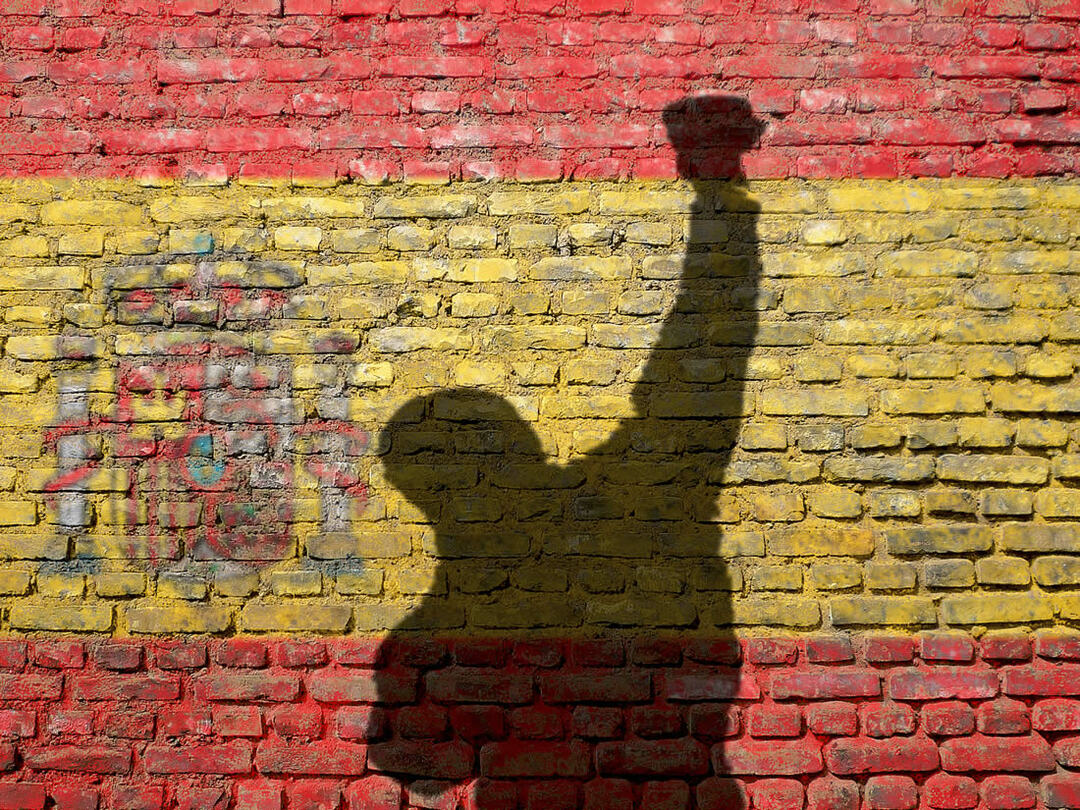Insubordinate Movement in Spain
Miscellanea / / July 04, 2021
By Guillem Alsina González, in Dec. 2018
 Currently, most armies in the world are professionals, which means that only those who want to pursue this professional career work as soldiers. But a few years ago, the situation was not like that, and in most armies professional soldiers and soldiers of the army were combined.
Currently, most armies in the world are professionals, which means that only those who want to pursue this professional career work as soldiers. But a few years ago, the situation was not like that, and in most armies professional soldiers and soldiers of the army were combined.
In many countries, society demanded a change in the model, and those demands were heard. Spain was a special case: it had emerged from a military dictatorship, and the weight of the military establishment in the politics it was still big.
And the institution The army was, by tradition, reluctant to abolish conscription, although the more progressive military looked favorably on a fully professional army.
In this process, the so-called “movement unsubmissive".
The Spanish rebellious movement defended the idea of not performing military service or compulsory substitute social benefit (PSS) in the event that they did not want to do military service.
The PSS, approved in 1984 and which came into force the following year, provided for a civil service of a social nature (although this character was very lax, being able to get one to be assigned to a bank ...) in substitution of military service as community service, with a duration of 18 months.
It was an alternative designed for anyone who was an objector to conscience, so that he could also render the service to society that military service was supposed to do. And also a small "punishment", since its duration was greater than 12 months of military service, although it was carried out in the same town of residence and was often part-time.
In fact, many of those who took the PSS remember it almost as just another work experience, albeit unpaid and in a weirder way. It is my case, since I had to make this provision (I was an objector, but not a rebellious one) in the UGT union (a trend socialist), as I work part-time.
Despite the possibility of this substitute service, there were still objectors who did not agree with it, considering that, In addition to penalizing the objector for overtime, it was a way of substituting paid work for a kind of "Slavery".
From there, from that group of nonconformists committed to a struggle of a marked social nature, the rebellious movement was born, which advocated not doing even the “milli”(As compulsory military service was popularly known in Spain), nor the PSS.
Although insubordination exploded in the late 1980s, it went back almost two decades, when the first conscientious objector declared himself as such.
It was the year 1971, and his name was Pepe Beunza, who will later be one of the emblematic figures of the rebellious movement.

People who declared themselves insubordinate were breaking the law, for which they were prosecuted.
Governments have never liked those who oppose their power, even for a just cause, and in one way or another they have always persecuted them.
The first trials involved a very high political cost for Spanish governments throughout the 1990s. In addition, justice - traditionally "slow" in the country - could not keep up with the number of insubordination, which was gradually increasing.
With this situation, many who were in the position of whether to do the milli, the PSS or declaring themselves insubordinate, the last option seemed increasingly appetizing, since there was a certain idea among the society that, in the end, only a few insubordinate were judged, and the vast majority were not even bothered by the policeman.
This acted with a snowball effect: more insubordinate, more difficulties of justice to summon them all, which generated a greater confidence on the "immunity" of these in society, which in turn increased the number of insubordinate. The phenomenon was self-feeding.
The rebellious movement organized itself in an assembly way, seeking - and achieving - a profound social impact.
The rebels were not only champions of this social struggle, but also of various other causes, generally akin to leftist ideas.
The movement was articulated around the slogan "Mili KK" (I think it is not necessary to explain how it is pronounced and its meaning ...), and also welcomed in its bosom insubordinate ones who were so for reasons other than the pure and simple antimilitarism.
Among these, who would be more so for political reasons, in addition to social ones, stand out Basque and Catalan independentists, who what they did not want mainly was to serve in a "Spanish" army or to compensate the occupying state of their respective countries for not do it.
At the end of the nineties, the political situation with respect to this point was unsustainable, which is why the large majority parties in Spain opted for professionalizing the army.
In 1996 the Popular Party (PP) wins the elections, and one of its first measures is to announce the professionalization of the Spanish armed forces for 2003.
In 2000, the last year of compulsory military service, 91,000 “fifths” (traditional name received by conscripts in Spain) were drawn. Only 5,000 will actually do their military service.
The insubordinate movement in Spain soaked several layers of society, and managed to overcome the pulse that government, something very complicated in current societies.
Paradoxically, not yet in Spain, but in some especially European countries, as of today (* October 2018) they are thinking of reintroducing compulsory military service for a weather generalized prewar, and the proclaimed threat russian.
Photos: Fotolia - Rider / Jonathan Stutz
Issues in Motion Insubordinate in Spain